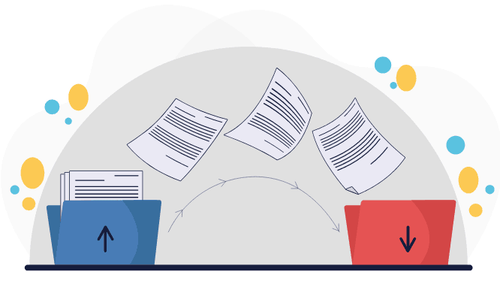Stopped SIP? Use Systematic Transfer Route As And When You Have A Surplus
- 3m•
- 1,121•
- 24 Apr 2023
Inflows into equity funds via the systematic investment plan (SIP) route fell from Rs 8,641 crore in March to Rs 8,376 crore in April 2020. This is a 3 per cent fall, so the tendency to stop SIPs has not assumed worrisome proportions yet. But many people have lost their incomes or seen considerable erosion, and many more are worried about the sustainability of future cash flows. So, it is inevitable that such investors will, in the near future, ponder whether to continue their SIPs.
Experts say if someone has lost his job or seen his income dwindle drastically during the lockdown, it is okay for him to pause or stop SIPs. “It may also be okay if you decide to divert your SIP money towards building an emergency corpus or reducing high-cost debt,” says Vishal Dhawan, chief financial planner, Plan Ahead Wealth Advisors.
It is natural for someone who has lost his job to experience a reduction in his risk appetite. “If the economic situation worsens, such a person may not find another job for a long time. And the value of his equity portfolio may diminish further. Someone who has been hit by one type of risk will experience diminished appetite for another type of risk,” says Avinash Luthria, a Sebi-registered investment advisor and founder, Fiduciaries. Such people, he says, should not try to make up for lost income by taking added risk in the equity markets.
Investors over-allocated to equities may also pause or stop their SIPs. “It is only when risk unfolds that we learn how much of it we are actually capable of taking,” says Swarup Mohanty, chief executive officer, Mirae Asset Investment Managers India. When the going is good, investors convince themselves they have the appetite for a 70-80 per cent allocation to equities, and that they can handle a 50 per cent drop. But problems often come bunched together. “Today there is insecurity on the jobs front and about our health situation. Over and above that, equity holdings have declined in value. When investors are hit on so many fronts simultaneously, they realise they may have over-estimated their risk-taking ability,” says Luthria.

On the other hand, people who still have their jobs, possess an adequate emergency corpus, are not heavily leveraged, and are not over-allocated to equities should continue with their SIPs. “Go by your personal circumstances. The breadwinner in a single-income family who has seen income reduction may be forced to reduce or stop his SIPs. On the other hand, a double-income family that has not taken a hit to its income may well continue with them,” says Dhawan. Such people may even think of increasing their SIPs. With avenues for discretionary expenditures closed, they would have experienced a surge in savings.
For such people, these are the best of times to invest more via the SIP route. “Currently, investors are getting to accumulate funds units at much lower prices than just a few months ago. The more units one accumulates now, the better are one’s chances of creating wealth in the future,” says Mohanty.
Those forced to reduce or stop their SIPs should try to invest as and when they have some surplus. Such investors should make use of the systematic transfer plan (STP) route to get the benefit of rupee-cost averaging.
Finally, do not swing to the other extreme of lowering equity allocation to excessively low levels. “Though it appears improbable today, we could have high inflation in the future. Equities have much better inflation-fighting capability than fixed-income instruments,” says Luthria. Leave untouched any equity allocation you may have made for long-term goals.





